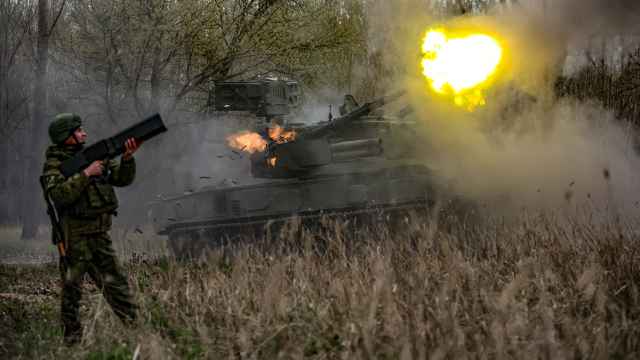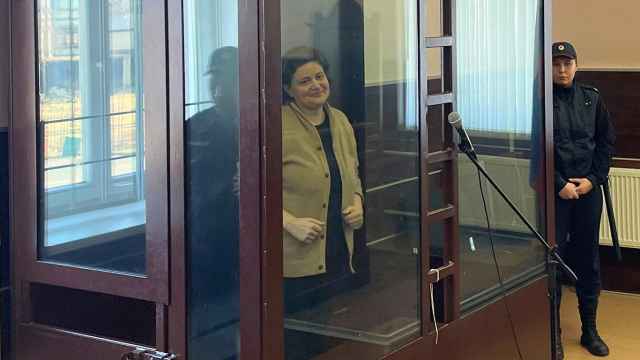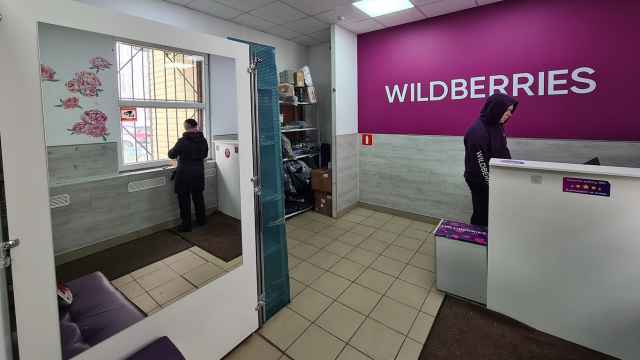There are no Moscow police protecting illegal casinos, Andrei Andreyev, head of the Main Directorate of the Interior Ministry, announced Tuesday.
"Police 'roofs' don't exist. I am positive that none of my co-workers would conceive of doing something like that," Andreyev said. "I am speaking for Moscow, not for the region," he added.
On Monday, the Federal Security Service accused heads of the Moscow region prosecutor general, including the first deputy prosecutor and regional police, of protecting illegal gambling dens in return for perks such as trips abroad.
Moscow Deputy Prosecutor General Vladimir Malinovsky sparked rumors in the media of his involvement with the scandal when he called off the investigation that same day, citing insufficient evidence.
Charges were dropped on Tuesday against Igor Nazarov, the alleged coordinator of the illicit casino ring, as he was waiting for arraignment in court, Interfax reported.
Police found evidence linking high-level law enforcement officials to Nazarov, who allegedly organized gaming in 15 cities in the Moscow region, according to reports in the media. Artworks by Picasso and Rembrandt worth more than $5 million and documents for offshore companies of Kremlin critic Boris Berezovsky were also seized.
Attacks on the illegal gambling business intensified after Mayor Sergei Sobyanin created special units to be on call 24 hours a day at the end of last year. In January, the police opened 62 investigations and confiscated 2,500 gaming machines.
Moscow was home to 140,000 slot machines before the gambling ban, but now casinos have gone deeper underground, beefing up security and masquerading as lottery parlors, which are still legal.
The real quantity and revenue of illegal gaming establishments remains unclear, but last year police confiscated nearly 29 million rubles, $753,000, 9,500 euros — $1.75 million in total — and 29,960 gambling machines, Andreyev said.
Illegal establishments in Moscow and the region multiplied since casinos were outlawed in the capital and relegated to four undeveloped faraway regions in July 2009.
Gaming Business Association vice president Vladimir Ilyushin said the law was political, without considering the economic consequences.
"Many casino owners went illegal," Ilyushin said.
Ilyushin praised the law, but said it needs to be reworked to reach a compromise with the gaming community. Underground casinos are a blight and a magnet for criminals, Ilyushin said.
Residents of a khrushchyovka — a five story building from the Khrushchev era — on the south side of Moscow have struggled to get rid of a 24-hour gaming club in their basement for more than a year. The underground establishment brings noise, fights and suspicious people to the neighborhood, said Alexander, who heads the building's homeowners association.
The club continues to exist, despite raids and complaints filed with the local and city authorities. But now the door is locked, and security guards watch the place from cars parked nearby.
Alexander said local police condone the gambling.
"Our police officer shakes hands with the guards," Alexander said. "Now do you understand?"
A Message from The Moscow Times:
Dear readers,
We are facing unprecedented challenges. Russia's Prosecutor General's Office has designated The Moscow Times as an "undesirable" organization, criminalizing our work and putting our staff at risk of prosecution. This follows our earlier unjust labeling as a "foreign agent."
These actions are direct attempts to silence independent journalism in Russia. The authorities claim our work "discredits the decisions of the Russian leadership." We see things differently: we strive to provide accurate, unbiased reporting on Russia.
We, the journalists of The Moscow Times, refuse to be silenced. But to continue our work, we need your help.
Your support, no matter how small, makes a world of difference. If you can, please support us monthly starting from just $2. It's quick to set up, and every contribution makes a significant impact.
By supporting The Moscow Times, you're defending open, independent journalism in the face of repression. Thank you for standing with us.
Remind me later.





